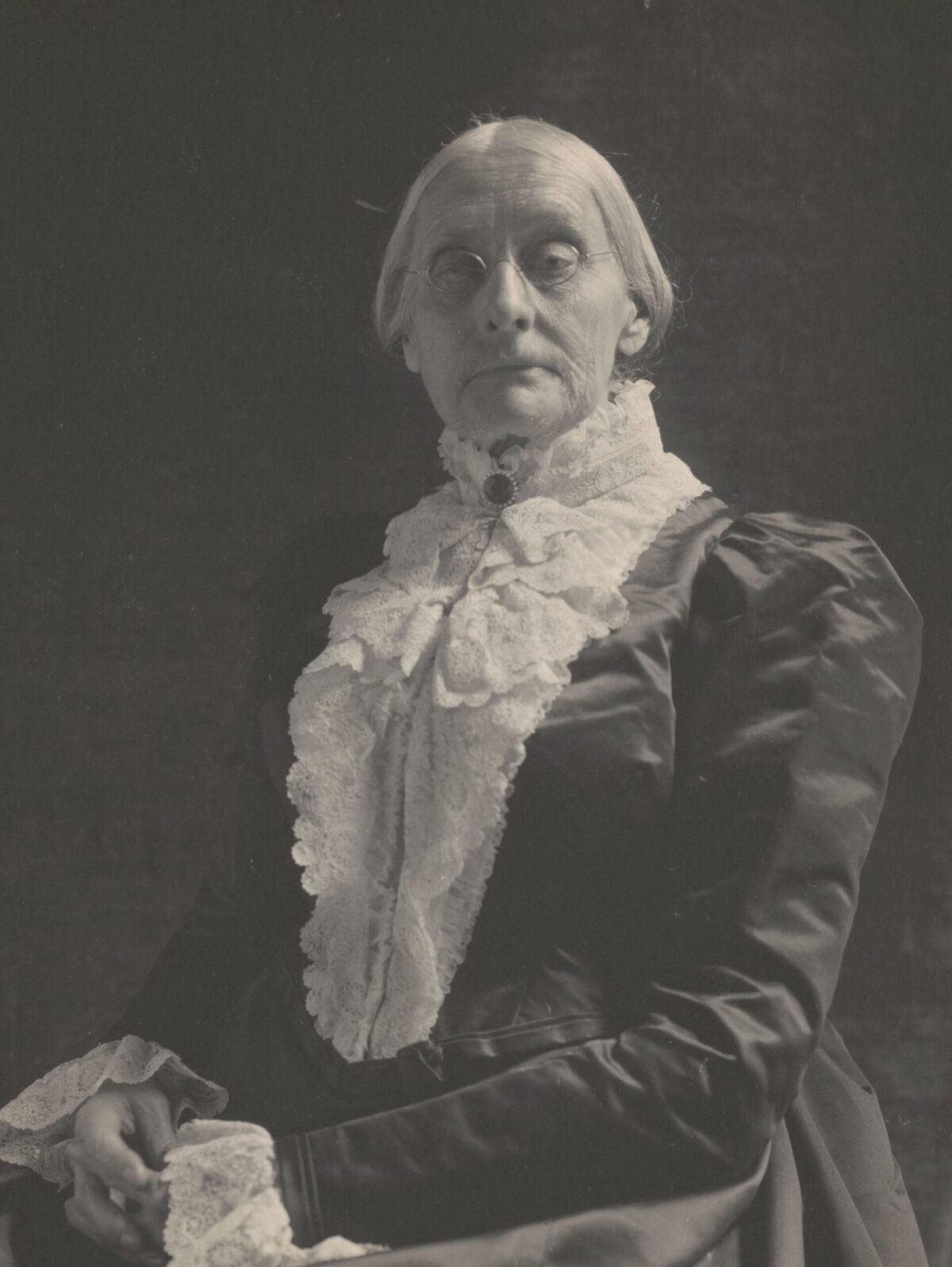On November 1, 1872, Susan B. Anthony entered a barbershop in Rochester, N.Y., that doubled as a voter registration office and insisted she had as much right to vote as any man. Startled officials allowed her to register after she threatened to sue them. Four days later she cast a ballot for Ulysses S. Grant for president. She was arrested and charged with voting illegally. Before the case went to trial in June 1873, she gave the speech below in 29 nearby towns. A federal judge was unmoved and ordered the jury to find her guilty.
Friends and fellow citizens: I stand before you tonight under indictment for the alleged crime of having voted at the last presidential election, without having a lawful right to vote. It shall be my work this evening to prove to you that in thus voting, I not only committed no crime, but, instead, simply exercised my citizen’s rights, guaranteed to me and all United States citizens by the National Constitution, beyond the power of any state to deny.
The preamble of the Federal Constitution says: “We, the people of the United States, in order to form a more perfect union, establish justice, insure domestic tranquility, provide for the common defense, promote the general welfare, and secure the blessings of liberty to ourselves and our posterity, do ordain and establish this Constitution for the United States of America.” It was we, the people; not we, the white male citizens; nor yet we, the male citizens; but we, the whole people, who formed the Union. And we formed it, not to give the blessing s of liber ty, but to secure them; not to the half of ourselves and the half of our posterity, but to the whole people—women as well as men. And it is a downright mockery to talk to women of their enjoyment of the blessings of liber ty while they are denied the use of the only means of securing them provided by this democratic-republican government—the ballot.
For any state to make sex a qualification that must ever result in the disfranchisement of one entire half of the people, is to pass a bill of attainder, or, an ex post facto law, and is therefore a violation of the supreme law of the land. By it the blessings of liberty are forever withheld from women and their female posterity.
To them this government has no just powers derived from the consent of the governed. To them this government is not a democracy. It is not a republic. It is an odious aristocracy; a hateful oligarchy of sex; the most hateful aristocracy ever established on the face of the globe; an oligarchy of wealth, where the rich govern the poor. An oligarchy of learning, where the educated govern the ignorant, or even an oligarchy of race, where the Saxon rules the African, might be endured; but this oligarchy of sex, which makes father, brothers, husband, sons, the oligarchs over the mother and sisters, the wife and daughters, of every household— which ordains all men sovereigns, all women subjects, carries dissension, discord, and rebellion into every home of the nation.
Webster, Worcester, and Bouvier all define a citizen to be a person in the United States, entitled to vote and hold office.
The only question left to be settled now is: Are women persons? And I hardly believe any of our opponents will have the hardihood to say they are not. Being persons, then, women are citizens; and no state has a right to make any law, or to enforce any old law, that shall abridge their privileges or immunities. Hence, every discrimination against women in the constitutions and laws of the several states is today null and void, precisely as is every one against Negroes.
Not until when?
Years in which major nations gave women equal voting rights:
New Zealand . . . . . . . . . . . . . . . 1893
Finland . . . . . . . . . . . . . . . . . . . . . 1906
Norway . . . . . . . . . . . . . . . . . . . . . 1913
Canada . . . . . . . . . . . . . . . . . . . . . 1918
Germany . . . . . . . . . . . . . . . . . . . 1918
United States . . . . . . . . . . . . . . 1920
United Kingdom . . . . . . . . . . . 1928
France . . . . . . . . . . . . . . . . . . . . . . 1944
Japan (with limitations) . . . . . . . . . 1945
China . . . . . . . . . . . . . . . . . . . . . . . 1947
Mexico . . . . . . . . . . . . . . . . . . . . . . 1953
Switzerland . . . . . . . . . . . . . . . . . 1971





